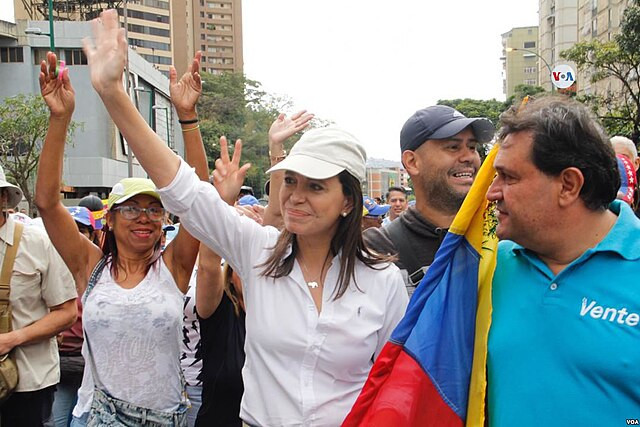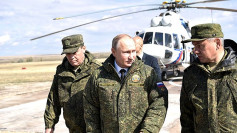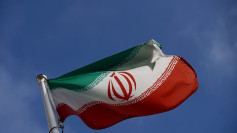Venezuelan opposition leader Maria Corina Machado was awarded the 2025 Nobel Peace Prize on Friday for her fight against President Nicolás Maduro's authoritarian rule, a decision that drew swift criticism from the White House even as it spotlighted Venezuela's long-running democratic struggle.
Machado, 58, who has been living in hiding since she was barred from running in last year's presidential election, received the award "for promoting democratic rights" in a country that has endured years of political repression and economic collapse. Speaking by phone with Nobel Committee secretary Kristian Berg Harpviken, Machado said, "Oh my God ... I have no words. I thank you so much, but I hope you understand this is a movement, this is an achievement of a whole society. I am just one person. I certainly do not deserve it."
The Norwegian Nobel Committee said it chose Machado to honor "courageous defenders of freedom who rise and resist" when "authoritarians seize power." Committee chair Joergen Watne Frydnes told Reuters the group hoped "the entire opposition will have renewed energy to continue the work for a peaceful transition from dictatorship to democracy."
The award immediately triggered a political backlash in Washington, where President Donald Trump's administration accused the Nobel Committee of bias. White House spokesperson Steven Cheung said on X, "President Trump will continue making peace deals, ending wars, and saving lives... The Nobel Committee proved they place politics over peace."
Machado's victory makes her the first Venezuelan to receive the Nobel Peace Prize and the sixth laureate from Latin America. The United Nations human rights office welcomed the choice, calling it a reflection of "the clear aspirations of the people of Venezuela for free and fair elections."
While exiled from public life, Machado has maintained a vocal presence abroad, often praising Trump for his stance against Maduro. In an August letter titled "Venezuela will be free," she wrote, "We extend our deepest gratitude to President Donald J. Trump and his administration... your unwavering commitment to justice and liberty further strengthens the resolve of millions of Venezuelans."
In interviews, she has described Trump as "the biggest chance we have ever had" to end Venezuela's dictatorship and called his sanctions policy "courageous" and "visionary." She told Politico in February, "What's happened is a clear statement from the Trump administration as to the threat that Venezuela poses." Speaking to journalist Carla Angola, she said, "President Trump is an ally of democracy, of the Venezuelan people. The measures he has recently taken (increased sanctions) demonstrate this."
Machado's alliance with Washington intensified after Trump ordered military strikes on Venezuelan waters in what the U.S. described as counter-drug operations. Despite Caracas's denials, she defended the action to The Sunday Times, calling the attack "the right thing to do."
Maduro, who was sworn in for a third term in January after a disputed election condemned internationally as fraudulent, has long accused Machado of conspiring with the United States. The U.S. has raised the bounty for Maduro's capture to $50 million and in recent weeks intercepted several vessels allegedly carrying narcotics off Venezuela's coast.
The Nobel announcement also came days after Trump secured a ceasefire agreement between Israel and Hamas, a development some of his supporters believed would position him for the prize. Committee chair Frydnes said the decision on Machado had been finalized before the Gaza deal. "If it is nominated, then it will be considered, but time will show," he said when asked if Trump's peace efforts could be recognized next year.






